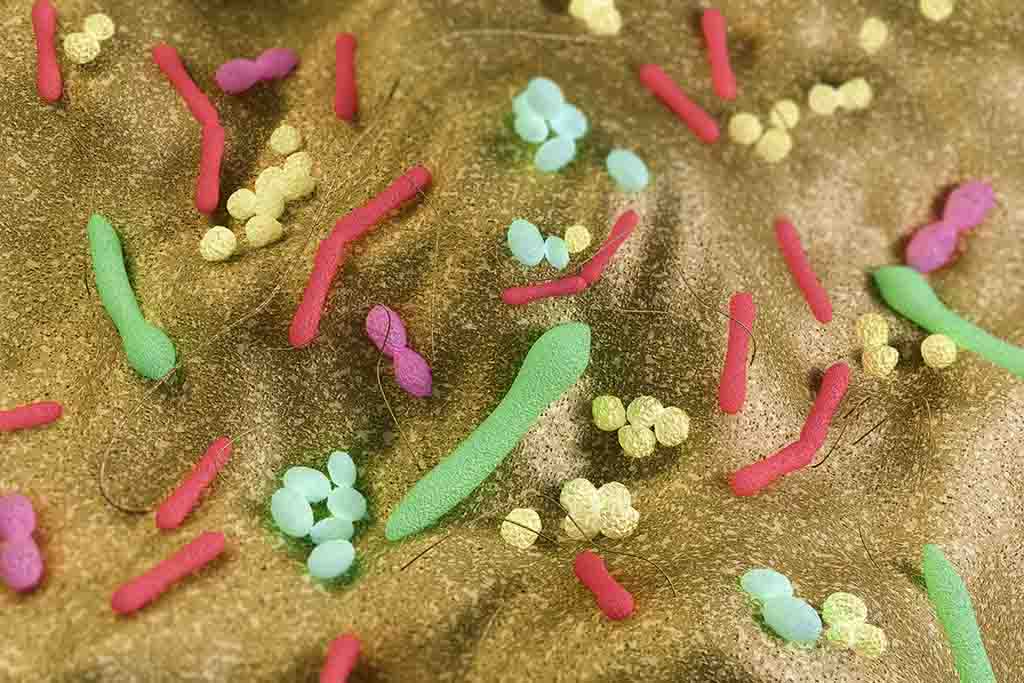The Independent's journalism is supported by our readers. When you purchase through links on our site, we may earn commission.
Gut bacteria, prebiotics and the link between helping stress, anxiety and depression
A new study is the first to show prebiotic effects on human behaviour

The notion that bacteria living in your gut can affect your brain may seem odd. Yet a good deal of research indicates that intestinal bacteria are intimately entwined with the function of our bodies – and our brains. Scientists at Oxford University recently made an important advance in this field with a study demonstrating that consumption of prebiotics affects both emotional processing and stress hormone levels in healthy volunteers.
There are two ways to manipulate the microbes in the gut (collectively, the microbiome): by consuming live cultures of bacteria called probiotics; or by ingesting certain types of sugar molecules, known as prebiotics, that nurture growth of these bacteria. While previous research has established that probiotics can alter human brain function, similar effects of prebiotics have until now only been found in animals. The Oxford study is the first to show prebiotic effects on human behaviour.
The researchers were particularly interested in whether the prebiotics would affect emotion and stress, as much of the data on the microbiome-brain connection concerns the role gut bacteria play in stress-related disorders like anxiety and depression. Patients with these disorders may experience digestive as well as psychological symptoms, and studies in both humans and animals indicate that the number and type of bacteria in the gut influence anxiety levels. Probiotics appear to lower anxiety in humans, so the Oxford team set out to investigate whether prebiotics do the same.
To do so, they recruited healthy volunteers to take one of two types of prebiotic, or a placebo, each morning for three weeks. At the end of this period, the volunteers completed a series of tasks designed to test emotional processing. One of these tasks turned up a positive result: volunteers who took a prebiotic called B-GOS paid less attention to negative words, and more attention to positive ones, than those taking placebo. Volunteers taking B-GOS also had lower levels of the stress hormone cortisol in their saliva after three weeks on the prebiotic than they had at the beginning of the experiment.
Interestingly, the second prebiotic tested, FOS, affected neither emotional processing nor cortisol levels. This difference is in line with previous work showing that B-GOS more strongly stimulates the growth of intestinal microbes than does FOS. As these findings highlight, research on the microbiome must take account not just of the distinction between probiotics and prebiotics but also of differences among classes of prebiotics.
The effect of B-GOS on the attention task is similar to results found when healthy volunteers were given anti-anxiety or anti-depressant medication and asked to perform the task. The way attention is caught by emotionally charged stimuli (like the positive and negative words used in the test) is thought to be a key feature of anxiety disorders and depression. If attention too easily latches onto negative or threatening thoughts, or if it stays stuck on those thoughts for too long, this may contribute to anxious or depressive symptoms. The finding that prebiotics shift attention from the negative towards the positive thus suggests that they might have therapeutic uses. As the study’s senior author Dr. Philip Burnet notes, however, prebiotics and probiotics are likely to be administered as adjunct therapies alongside current pharmacological and psychological treatments rather than on their own.
Prebiotic effects on cortisol are similarly intriguing. The body’s stress response system shares a close relationship with the microbiome. In fact, animal studies indicate that the bacteria present in the gut in early life affect the development of the stress system and shape how the animal responds to stress in adulthood. The dampening effect of prebiotics on cortisol levels seen in the Oxford study are evidence of the microbiome’s continued influence over the stress response system and, given the role stress plays in psychiatric disorders, further supports the potential use of prebiotics as adjunct therapies for anxiety or depression.
The relationship between stress and gut bacteria may be relevant for diseases of the gastrointestinal tract as well as of the brain. Stress is thought to play a role in disorders like irritable bowel syndrome, Crohn’s disease, and colitis. The question of how the microbes fit into this picture is a hot one, and much of the data on probiotics and prebiotics comes out of studies of such disorders.
Mounting evidence thus indicates that manipulations of the microbiome affect both the brain and the body. The influence of probiotics on brain function has been demonstrated, and this latest research from Oxford has now opened the door for investigation of prebiotic effects. The study of the microbiome-brain connection will likely intensify in coming years given its potential to contribute to treatment of stress-related diseases.
Clio blogs at Neurobabble http://neurobabble.co.uk/
Join our commenting forum
Join thought-provoking conversations, follow other Independent readers and see their replies
4Comments